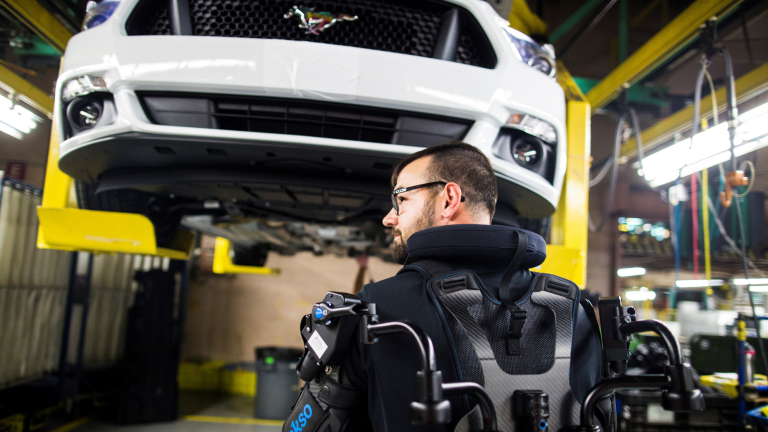The automaker is testing whether productivity gains among workers who wear the strength-boosting suits make the technology cost-effective.
Testing 1, 2, 3: Last year, Ford deployed exoskeletons at two of its factories in Michigan. Based on those tests it’s now expanding their use to 15 plants around the world. Every North American factory will be receiving at least one, while the rest will go to facilities in Asia, Europe, and South America.
What they do: The EksoVests, produced by Ekso Bionics, help provide an extra five to 15 pounds of force per arm when lifting heavy items. In Ford’s case, the vests are especially helpful to assembly line workers that spend most of their time reaching up to work on the undersides of cars.
The rollout: A total of 75 EksoVests will be issued in Ford’s next stage of experimentation. That’s a small number in a company of over 200,000 employees, but the company sees it as a stepping stone for future efforts that go beyond assisting with overhead work. "We wanted to focus on one exoskeleton initially, then expand from there as the space grows," Marty Smets, Ford's technical expert of human systems and virtual manufacturing, told Engadget.
Why it matters: Exoskeletons can help reduce worker injury and increase productivity. These tests are meant to prove the technology’s utility and whether it’s a financially feasible investment for large manufacturers.

